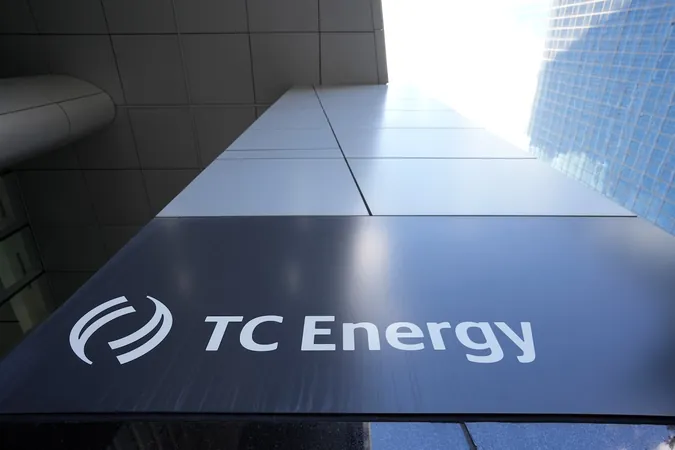
TC Energy Spins Off South Bow: Why You Should Pay Attention to Its Lucrative Dividend!
2024-10-04
This week, TC Energy Corp. completed a significant restructuring, resulting in the formation of South Bow Corp. for investors. While spinoffs can be a mixed bag for small investors, the newly established South Bow presents intriguing potential, particularly for those seeking reliable dividend income.
TC Energy, based in Calgary, decided to separate its oil pipeline operations from its assets in natural gas pipelines and storage. In this restructuring, shareholders of TC Energy received an additional 0.2 shares in South Bow for each share they held. For example, an investor holding 100 shares of TC Energy now has 20 shares of South Bow, which was valued at approximately $580 on opening day trading.
While holding a few shares in a newly spun-off company can feel trivial, it often calls for an important decision: whether to acquire more shares or to sell off what you currently possess in order to concentrate your investments. In the case of South Bow, there is a strong argument for buying more shares if you're after steady income bolstered by a strong dividend.
Historically, spinoffs have delivered impressive returns, and South Bow aims to follow this trend. The S&P U.S. Spin-Off Index, which tracks stocks that have been divested from parent companies over the past four years, has surged nearly 24% this year, outperforming the S&P 500. High-performing examples include GE Vernova, which has seen an astounding 80% increase since its launch in April, and Veralto Corp., up 43% since its own spinoff about a year ago.
However, investors should approach South Bow with a measure of caution. This company operates with considerable debt totaling $7.5 billion—5.2 times its 2023 earnings before interest, taxes, depreciation, and amortization (EBITDA). Currently, its dividend payments consume all its profits, indicating limited room for growth in the near term as the company works to reduce its high payout ratio.
The bulk of South Bow's cash flow—88%—is derived from long-term contracts with oil producers and refiners, meaning growth may be modest and constrained by regulatory hurdles surrounding pipeline expansions. In many ways, South Bow resembles a utility company, promising stability over rapid profit increases, but may that not be so bad?
Indeed, the Canadian utilities sector has performed impressively, boasting a 12% increase over the past three months, attracting investors to its appealing dividends and solid fundamentals. South Bow's annualized dividend is notably robust, set at US$2 per share with an implied yield of an eye-catching 9.3% based on upcoming dividend payments.
You might wonder if such a high yield might signal trouble ahead, often a red flag for companies facing instability. However, South Bow’s established track record makes a financial debacle unlikely right out of the gate. Prioritizing debt reduction, the company aims to significantly reduce its debt-to-EBITDA ratio in the coming years, suggesting a path toward financial health.
Major credit rating agencies, including Moody’s and S&P Global Ratings, have given South Bow an investment-grade rating, adding weight to the argument for its financial stability. However, analysts like Robert Catellier from CIBC Capital Markets predict that the dividend payout ratio will exceed 100% through 2027, meaning investors shouldn't expect an increase in dividends anytime soon.
That said, with a yield surpassing 9%, investors can feel reasonably well-compensated while they bide their time for potential growth. South Bow Corp. may just be a compelling addition to your portfolio, especially for those eyeing generous dividends in today's market.









 Brasil (PT)
Brasil (PT)
 Canada (EN)
Canada (EN)
 Chile (ES)
Chile (ES)
 España (ES)
España (ES)
 France (FR)
France (FR)
 Hong Kong (EN)
Hong Kong (EN)
 Italia (IT)
Italia (IT)
 日本 (JA)
日本 (JA)
 Magyarország (HU)
Magyarország (HU)
 Norge (NO)
Norge (NO)
 Polska (PL)
Polska (PL)
 Schweiz (DE)
Schweiz (DE)
 Singapore (EN)
Singapore (EN)
 Sverige (SV)
Sverige (SV)
 Suomi (FI)
Suomi (FI)
 Türkiye (TR)
Türkiye (TR)